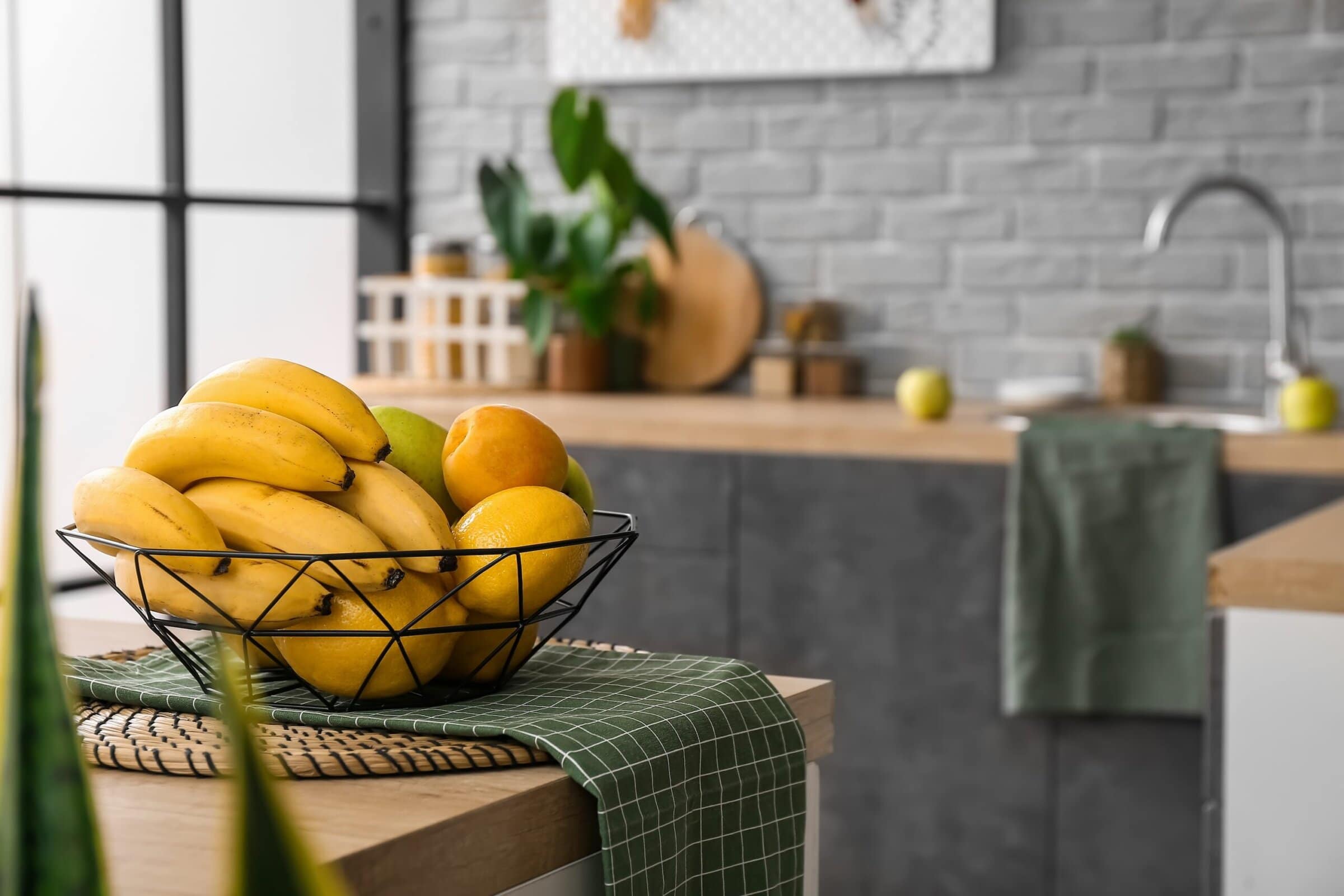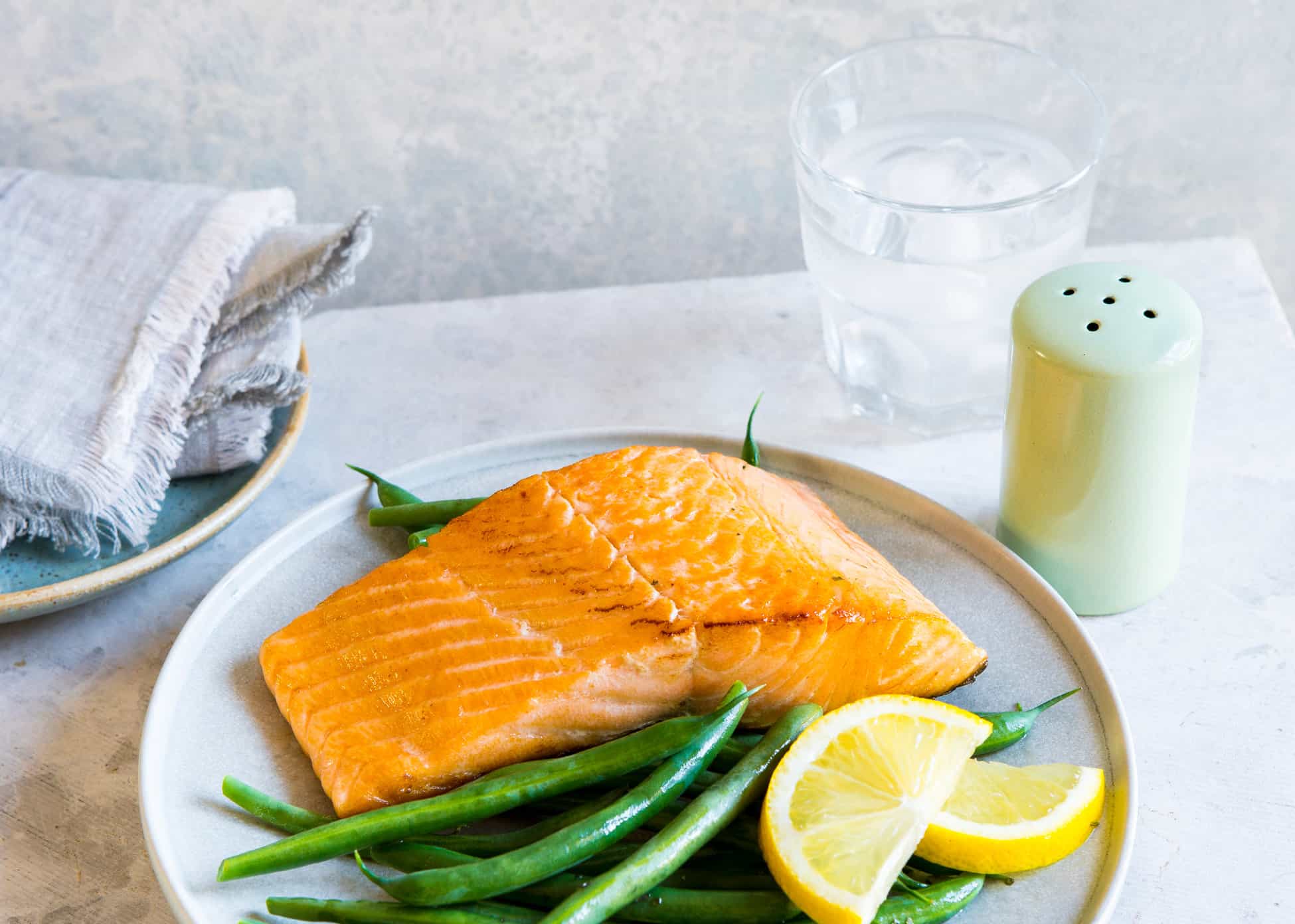Looking for a naturally sweet, nutritious snack that helps control hunger while supporting your weight loss goals? Bananas are a popular fruit choice that comes pre‐packaged with dietary fiber, essential vitamins, and antioxidants. They help fuel your body with a balanced mix of carbohydrates and natural sugars for sustained energy without a calorie overload. In this article, we break down the macronutrient and micronutrient profile of a banana, explain how it fits into various diets, and share evidence-based insights on its health benefits.
✅ Quick Answer
Yes, bananas can help with weight loss because:
- They’re high in fiber: Bananas provide dietary fiber that promotes satiety and reduces overall calorie intake.
- They’re low in calories: A banana offers essential nutrients with only about 105 calories, making it a smart snack.
- They are nutrient-dense: Packed with potassium, vitamin B6, and antioxidants, they support muscle function and metabolism while aiding weight management.
🥗 Nutrient profile of a medium banana (about 118 grams)
| Nutrient | Amount | % RDA* |
|---|---|---|
| Calories | 105 kcal | 5% |
| Protein | 1.3 g | 3% |
| Total Carbohydrates | 27 g | 10% |
| Dietary Fiber | 3.1 g | 12% |
| Sugars | 14.4 g | (no official RDA) |
| Total Fat | 0.4 g | 1% |
| Saturated Fat | 0.1 g | 1% |
| Monounsaturated Fat | 0.03 g | (no official RDA) |
| Polyunsaturated Fat | 0.07 g | (no official RDA) |
| Omega-3 | 0.03 g | (no official RDA) |
| Omega-6 | 0.07 g | (no official RDA) |
A typical medium banana provides about 105 calories along with 27 g of carbohydrates and 3.1 g of fiber, which aids in satiety and supports a healthy digestive system. While its protein and fat contents are low, the natural sugars are balanced by fiber, making it an excellent, nutrient-dense snack.
*Recommended dietary allowance (RDA) is defined as the average daily amount of nutrients needed to meet the requirements of nearly all healthy people (based on FDA’s RDVs).
💊 Vitamins & minerals in a medium banana (micronutrients)
| Vitamin/mineral | Amount (per medium banana) | % RDA (males) | % RDA (female) | RDA/AI Values |
|---|---|---|---|---|
| Vitamin A | 64 µg RAE | 7% | 9% | Male: 900 µg RAE Female: 700 µg RAE |
| Vitamin C | 10.3 mg | 11% | 14% | Male: 90 mg Female: 75 mg |
| Vitamin B6 | 0.43 mg | 33% | 33% | Adults 19-50: 1.3 mg Male 51+: 1.7 mg Female 51+: 1.5 mg |
| Potassium* | 422 mg | 9% | 9% | Adults: 4700 mg (AI) |
| Magnesium | 32 mg | 8% | 10% | Male: 420 mg Female: 320 mg |
| Zinc | 0.18 mg | 2% | 2% | Male: 11 mg Female: 8 mg |
| Selenium | 1 µg | 2% | 2% | Adults: 55 µg |
| Manganese* | 0.27 mg | 12% | 15% | Male: 2.3 mg (AI) Female: 1.8 mg (AI) |
*Note: Potassium and Manganese values are based on Adequate Intake (AI) rather than Recommended Dietary Allowance (RDA). Percentages are rounded to the nearest whole number and based on adult values. Requirements may vary based on age, pregnancy status, and other individual factors.
A medium banana is a good source of vitamin B6 and potassium, both of which are important for energy production and muscle function. With moderate amounts of vitamin C and magnesium along with trace minerals, bananas help round out your micronutrient intake, supporting overall metabolic health and aiding in weight management.
🔍 Nutrient breakdown
Glycemic Index (GI) of medium banana
- Glycemic index: Approximately 51 (Moderate)
💡 Tip: Although bananas have a moderate GI, their fiber content ensures a gradual rise in blood sugar, which helps in controlling hunger.
Are bananas high in protein?
- No – A medium banana contains only about 1.3 g of protein.
- Better protein alternatives: Lean chicken breast | Greek yogurt
- Better protein alternatives: Lean chicken breast | Greek yogurt
Are bananas high in fiber?
- Yes – It provides roughly 3.1 g of fiber per banana.
💡 Tip: Fiber is key to regulating digestion and promoting fullness; it’s important to include fiber-rich foods like bananas in your diet.
Are bananas low in carbs?
- No – A medium banana has around 27 g of carbohydrates.
💡 Tip: Despite its higher carbohydrate content compared to some fruits, the combination with fiber results in a moderated blood sugar response.
Are bananas gluten-free?
- Yes – Bananas are naturally gluten-free.
Are bananas good for fat loss?
- Yes – With low energy density and high fiber, medium bananas help keep calorie intake in check while supporting satiety.
🍽️ Diet compatibility: Which diets include bananas?
| Diet type | ✅ Yes / ❌ No | Explanation |
|---|---|---|
| Keto | ❌ No | The moderate carbohydrate content in a banana may exceed the strict carb limits required on a ketogenic diet. |
| Paleo | ✅ Yes | Bananas are whole, natural foods that are acceptable on the Paleo diet when consumed in moderation. |
| Mediterranean | ✅ Yes | They fit perfectly into the plant-focused Mediterranean diet, providing energy and essential nutrients. |
| Vegan | ✅ Yes | Being 100% plant-based and unprocessed, bananas are ideal for vegan and vegetarian diets. |
| Gluten-Free | ✅ Yes | Naturally gluten-free, bananas are safe for individuals with celiac disease or gluten sensitivities. |
Summary:
Medium bananas work well with most balanced and plant-forward diets like Paleo, Mediterranean, and vegan regimens. However, due to their carbohydrate content, they are not the best option for very low-carb diets such as keto.
🌟 Additional health benefits of bananas
Metabolic health: Are bananas good for your metabolism?
- Boost metabolism? Neutral – While they don’t directly boost metabolism, bananas provide sustained energy that supports an active lifestyle.
- Improve insulin sensitivity? Yes – The fiber and natural sugars support stable blood sugar levels, aiding insulin sensitivity over time.
- Effect on fat storage? Helps prevent fat gain – A balanced snack that includes a banana helps control cravings and blood sugar spikes.
Cholesterol impact: Do bananas affect cholesterol levels?
- Lowers LDL cholesterol? Yes – The soluble fiber in bananas can help reduce LDL cholesterol levels.
- Raises HDL cholesterol? Possibly – A diet rich in fruits, including bananas, has been linked to modest improvements in HDL levels.
- Overall heart health? Positive – Bananas’ high potassium content and fiber support cardiovascular function.
💡 Tip: Pair them with a source of healthy fat or protein to optimize heart health.
Calorie deficit support
- Can you eat a medium banana for a calorie deficit? Yes – At roughly 105 calories per fruit, bananas are a smart option when combined with a balanced, calorie-controlled diet.
💡 Tip: Use bananas to satisfy sweet cravings while keeping overall calorie consumption in check.
Antioxidant content
- Rich in antioxidants? Yes – Bananas offer antioxidants and various polyphenols that help protect cells against oxidative stress.
Gut health and digestion
- Support gut health? Yes – The fiber acts as a prebiotic, fueling beneficial gut bacteria.
- Aid digestion? Yes – Dietary fiber promotes regular bowel movements and a healthy digestive tract.
Satiety and hunger control
- Help with satiety? Yes – The water and fiber in bananas help you feel fuller for longer.
- Satiety level: Moderate to high
💡 Tip: Pairing a banana with a protein source (such as nut butter) further enhances fullness and reduces snacking.
Anti-inflammatory, brain, skin, and hormone balance benefits
- Reduce inflammation? Yes – The antioxidants in bananas contribute to reducing inflammation.
- Brain health? Yes – Nutrients like vitamin B6 and antioxidants support cognitive function.
- Improve skin and hair health? Yes – Vitamins such as B6 and antioxidants promote healthier skin and hair.
- Help balance hormones? Yes – The fiber helps eliminate excess hormones, supporting balanced hormone levels.
🍽️ Best ways to eat bananas for weight loss
- ✅ Whole fresh fruit: Enjoy a medium banana as is—it’s a convenient, portable snack.
- ✅ Sliced with a protein-rich dip: Pair banana slices with a spoonful of peanut butter or Greek yogurt to boost satiety.
- ❌ Avoid processed banana products: Steer clear of banana-flavored snacks or highly sweetened products.
🚀 Weight loss benefits
- ✅ Great for snacking: Bananas are satisfying and can curb mid-meal hunger without excessive calories.
- ✅ Supports a balanced diet: Their natural sugars and fiber create a steady source of energy and help manage blood sugar levels.
- ✅ Nutrient boost: Rich in potassium and vitamin B6, bananas support muscle function and overall metabolic health during weight loss efforts.
⚠️ Potential downsides
- ⚠️ Digestive discomfort: Some individuals, particularly those sensitive to FODMAPs, may experience bloating or gas.
- ⚠️ Carbohydrate load: For very strict low-carb diets, the moderate carbohydrate content of bananas requires careful portion control.
Simple banana recipes to include in your diet
Need some ideas for incorporating bananas into your diet? Below are some healthy banana recipes to try:
Real results with a personalized weight loss program
Take the quiz!

- Banana and peanut butter (200 cal): A classic combo! Slice up a banana and eat it with a tablespoon of peanut butter (or your favorite nut butter) for some added protein and healthy fat.
- Banana-based smoothies (240 cal): Smoothies are a no-brainer way to add bananas to your diet. All you need to do is add a banana and your favorite ingredients to a blender and have breakfast or a snack!
- Two-ingredient banana pancakes (150 cal): These super simple pancakes use just banana and egg and can be customized with whatever toppings you like.
- Vegan savory banana fritters (235 cal): Want a banana recipe that’s savory instead of sweet? These banana fritters are packed with spices for flavor and would make a great snack or appetizer.
- Banana yogurt parfait (380 cal): Layer sliced banana and a few tablespoons of granola with low-fat Greek yogurt and drizzle honey for a quick yogurt parfait. Mix it up with your favorite toppings like fresh berries, dried coconut, or even a few dark chocolate chips.
- Banana energy bites (145 cal): For a healthy snack on the go, make a batch of these banana energy bites for a quick boost of energy between meals.
- Peanut butter banana overnight oats (370 cal): Bananas are a breakfast staple, but you can up your game by adding them to overnight oats for a filling start to your day.
- Chocolate-covered frozen bananas (255 cal): Craving a sweet treat? Try dipping a banana in melted dark chocolate and freezing it for a refreshing dessert.
- Banana ice cream: A sliced frozen banana and a good blender are all you need for this creamy dessert.
Search for the bold recipes in your Noom app!
🍏 Best alternatives & comparisons (per medium serving)
| Food | Calories | Carbs | Fiber | Good for weight loss? |
|---|---|---|---|---|
| Banana | 105 kcal | 27 g | 3.1 g | Yes |
| Apple | 95 kcal | 25 g | 4 g | Yes |
| Orange | 62 kcal | 15 g | 3 g | Yes |
| Pear | 100 kcal | 26 g | 5 g | Yes |
| Kiwi | 69 kcal | 16 g | 3 g | Yes |
A medium banana is a nutritious, energy-boosting option. While it has a higher carbohydrate content than some fruits like oranges or kiwis, its fiber and essential vitamins make it an excellent choice for a balanced diet.
Real results with a personalized weight loss program
Take the quiz!

🧠 Are bananas good for weight loss?
Bananas are a versatile and nutrient-dense fruit ideal for those looking to manage their weight. With only about 105 calories per fruit, their mix of natural sugars, fiber, and key micronutrients like vitamin B6 and potassium supports digestive health, stable energy levels, and cardiovascular function. By incorporating a medium banana into your daily diet—alone or paired with a protein source—you can satisfy sweet cravings, boost satiety, and contribute positively to a calorie-controlled, balanced eating plan. Replace high-calorie, processed snacks with whole fruits to enjoy sustained energy and improved metabolic well-being.
📖 Scientific evidence
- Bananas and other whole fruits may help prevent type 2 diabetes [BMJ, 2013]
A large study found that people who ate more whole fruits, including bananas, had a lower risk of developing type 2 diabetes. That’s good news for weight loss, too, since steady blood sugar can support appetite control and fat loss. - Eating more fruit may mean less weight gain over time [Eur J Nutr, 2016]
A study found that people who ate more whole fruits—bananas included—tended to gain less weight over time. Adding fruit to your routine may help support long-term weight management.



